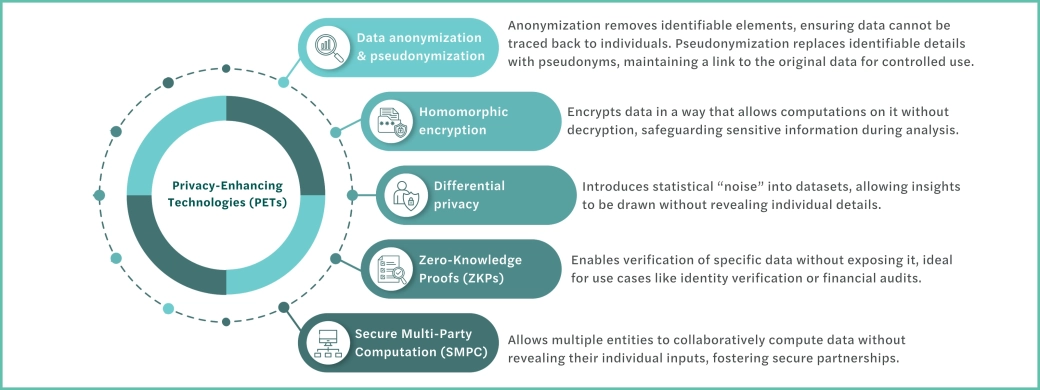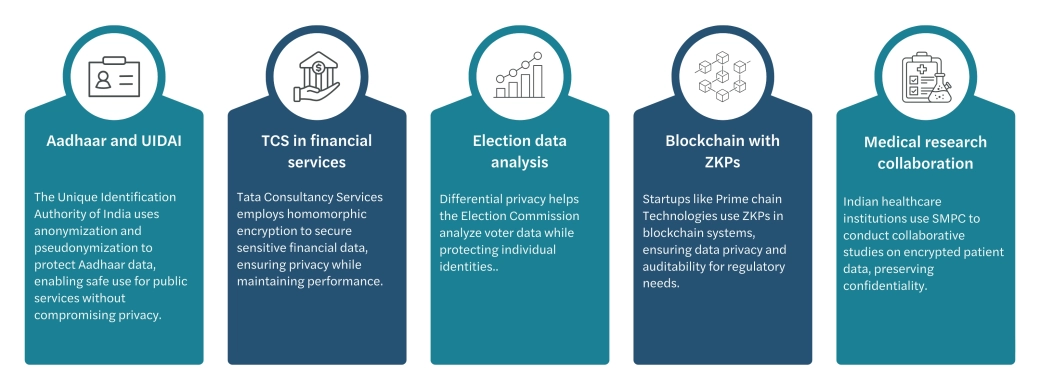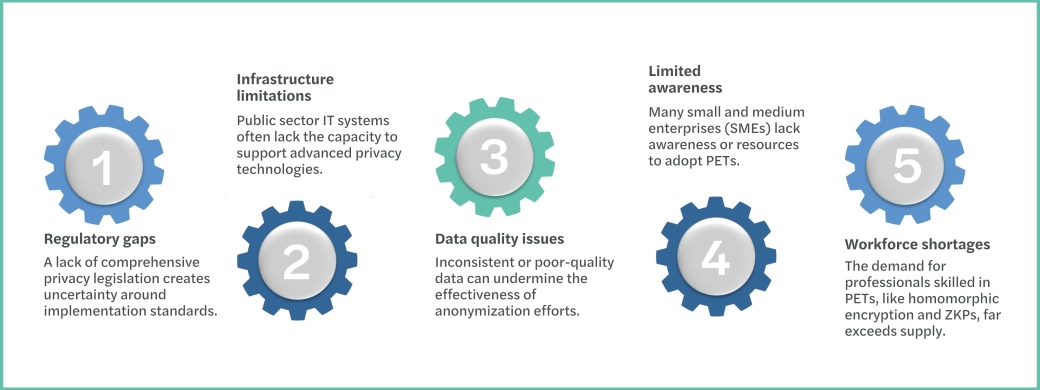Privacy-Enhancing Technologies (PETs): Advancing data privacy in India
Data privacy has emerged as a critical concern in the digital age, where the rapid growth of data-driven technologies has heightened the risk of privacy breaches. Protecting sensitive information from unauthorized access, misuse, or theft is imperative for maintaining individual rights and trust in technological systems. Privacy-Enhancing Technologies (PETs) offer robust solutions to address these concerns, enabling individuals and organizations to safeguard data privacy while allowing data to be processed and shared securely. This paper explores the importance of data privacy, examines the various types of PETs, successful case study in Indian market and challenges India face to implement PETs in industries.
Why Data Privacy Matters
In our connected world, data privacy is more than a legal requirement—it's a fundamental right. Every day, people and businesses generate vast amounts of personal information. From online shopping to health records, this data fuels the modern economy but also comes with risks, such as identity theft, financial loss, and reputational harm.
Data privacy ensures individuals have control over their information, determining how it is collected, stored, and shared. Global regulations like the GDPR and India’s Digital Personal Data Protection Act (DPDP) 2023 mandate responsible handling of data, emphasizing consent and transparency. However, as technology evolves, balancing privacy with the utility of data becomes increasingly complex.
This is where Privacy-Enhancing Technologies (PETs) step in. By leveraging tools like anonymization, encryption, and differential privacy, PETs allow secure data processing while reducing the risk of exposure. They empower organizations to innovate without compromising individual privacy.
What Are Privacy-Enhancing Technologies (PETs)?
PETs are technical solutions designed to protect sensitive data while enabling its analysis and processing. These tools strike a balance between data utility and privacy by minimizing exposure of personal information. Here’s a look at the major types of PETs:
PETs and India’s DPDP Act 2023
The Digital Personal Data Protection Act 2023 lays a strong foundation for privacy in India, aligning closely with PETs to ensure compliance. Key sections of the Act highlight the importance of technologies like anonymization, encryption, and differential privacy:
1.Section 4: Advocates for anonymization and pseudonymization to minimize data exposure.
2.Section 8: Supports advanced methods like homomorphic encryption for secure data processing.
3.Section 9: Encourages differential privacy for safeguarding data retention and deletion practices.
By integrating PETs, organizations can meet these obligations and minimize the risk of penalties under Section 25 for data breaches.
Success Stories: PETs in Action in India
Challenges to Privacy-Enhancement Technologies adoption in India
Despite the potential of PETs, several challenges hinder their widespread adoption in India
Privacy-Enhancing Technologies represent a crucial step toward balancing innovation and privacy in India’s data-driven economy. As sectors like finance, healthcare, and governance increasingly adopt PETs, the potential for secure, privacy-conscious data use grows. However, addressing challenges like regulatory clarity, infrastructure upgrades, and skill development is essential to unlocking their full potential. With the right ecosystem in place, India can lead the way in protecting individual rights while advancing technological progress.



